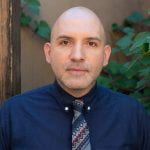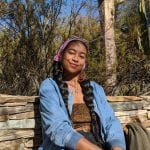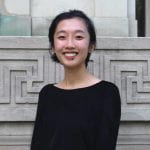According to the Bureau of Labor Statistics, essential workers represent 34-43% of the U.S. workforce. They earn low wages, have insecure or no benefits, and struggle with the most precarious job security and working conditions of any segment of American labor. Many have limited access to financial, health, legal, and familial support systems while they risk their lives keeping the country afloat during the pandemic. In Oregon, these ironies are especially dangerous for recent Latinx immigrants from Mexico and Central America—including one of the fastest growing indigenous Mayan Mam populations in the U.S.—who remain undocumented or on migrant-labor visas. The interrelated crises of systemic racism, climate change, and the pandemic make clear to us that we need new ways to map, visualize, and imagine the PNW in order to prepare strategically for just transitions that address economic dignity, immigrant rights, and the integrity of our climate.
Outcomes
More detailed information on these opportunities will be posted here, as it becomes available.
PNW Atlas of Essential Work
Call for Content (Rolling Basis)
This digital publication will be a joint project with our institutional partners (University of Idaho, Whitman College, and Heritage University). UO will host and design the Atlas. To complement efforts to foster community-engaged pedagogies by the UO Office of Sustainability and Student Sustainability Center, a multidisciplinary UO team will design the PNW Atlas of Essential Work. This Atlas will include histories and speculative futures of essential work, with an emphasis on the histories and stories of BIPoC workers who sustain our regional economy. Our purpose is to empower BIPoC students to share their stories; support faculty in developing racial justice-focused courses and project-based learning; and center Participatory-Action-Research methods and collaborative digital design to create an audiovisual epic of PNW race and labor histories—and futures.
Project collaborators represent: the Center for Environmental Futures; School for Architecture and Environment; Planning, Public Policy, and Management; Office of Sustainability; the Labor Education and Research Center (LERC); and the InfoGraphics Lab. Groundwork for the Atlas was laid through a recent CEF symposium about PNW essential workers in the time of COVID-19, held in October 2020, and consultations with the Research Action Design (RAD) collective, which specializes in participatory design and community-led research with BIPOC communities. UO Libraries’ Digital Scholarship Services will support proper access, preservation, and discoverability of the project with Infographics Lab.
Project Leads: John C. Arroyo | Stephanie LeMenager | Joanna Merson | Sarah Stoeckl
Sustainability Fellows Program
The Sustainability Fellows program supports faculty who want to build community-engaged research around sustainability into their curriculum. This support comes in the form of a pedagogy workshop, research stipends for participation, funding to bring projects to life, and connections to local community partners. Interested faculty will apply for pedagogical support for such community-engaged research in their courses through the OS, in response to a campus-wide advertisement. We will accept ten fellows per year, up to three of whom will come from Heritage University.
Our purpose is to foster student-led research into the experiences and lives of essential but invisible workers, showcase this research through digital storytelling, and develop a robust pedagogy for racial justice in the humanities and allied fields. OS Assistant Director Sarah Stoeckl has created the Partnership Pedagogy toolkit for faculty and students who want to contribute to the PNW Atlas of Essential Work.
Project Lead: Sarah Stoeckl
Just Futures Fellowships
The Just Futures Fellowships will support and empower undergraduate and graduate students from frontline communities—those who are the first to bear the brunt of climate change— and serve community partners. JF Fellows will receive training, mentorship, and summer stipends for their work with community partners, who will also be compensated for their engagement. Students will take methodological workshops and meet with compensated faculty advisors to identify community research needs and match them with partner organizations.
JF Fellows will present their research during annual research symposia at community sites. For 2021, probable community partners are Pineros y Campesinos Unidos del Noroeste (PCUN) and Lummi Nation (Lhaq’temish) tribal leaders, along with a new Lummi-led 501(c)(3), Se’Si’Le. Both PCUN and Se’Si’Le support essential work, promote traditional ecological knowledge (TEK), and foster marginalized communities by protecting migrant farmers and native fisheries and fishers.
Project Lead: Taylor McHolm
A State of Immigrants: A New Look at the Immigrant Experience in Oregon
Report: A State of Immigrants: A New Look at the Immigrant Experience in Oregon
Spanish Report: Un Estado de Inmigrantes: Una Nueva Mirada a la Experiencia de los Inmigrantes en Oregón
In association with the Atlas, an interdisciplinary group of scholars has worked to document, evaluate, and host presentations at community centers about immigration in Oregon over the past decade. This research will result in a bilingual report, “A State of Immigrants: A New Look at the Immigrant Experience in Oregon,” and a webinar series about the rights of essential workers and evolving worker advocacy and activism.
Project Lead: Bob Bussel
Team
John C. Arroyo, Ph.D. (he/him/él/they/them)
University of Oregon
Assistant Professor | Urban Studies and Planning and Chicanx and Latinx Studies
Founding Director | PNW Just Futures Institute
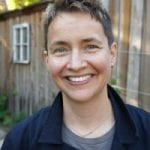 Stephanie LeMenager, Ph.D. (she/her)
Stephanie LeMenager, Ph.D. (she/her)
University of Oregon
Barbara and Carlisle Moore Distinguished Professor in English and American Literature
Professor | English & Environmental Studies
Co-Director | Center for Environmental Futures
Co-PI | PNW Just Futures Institute
Sarah Stoeckl, Ph.D. (she/her)
University of Oregon
Assistant Director | Office of Sustainability
Jessica Black, Ph.D. (she/her)
Heritage University
Director | Center for Indigenous Health, Culture & Environment
Chair | Department of Natural Science
 Bob Bussel, Ph.D. (he/him)
Bob Bussel, Ph.D. (he/him)
University of Oregon
Director | Labor Education and Research Center
Professor | History
 Franny Gaede (she/her)
Franny Gaede (she/her)
University of Oregon
Director | Digital Scholarship Services
Associate Librarian | UO Libraries
 Taylor McHolm, Ph.D. (he/him)
Taylor McHolm, Ph.D. (he/him)
University of Oregon
Program Director | Student Sustainability Center
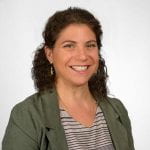 Joanna Merson (she/her)
Joanna Merson (she/her)
University of Oregon
Cartographic Developer | Infographics Lab
Research Assistant | Geography
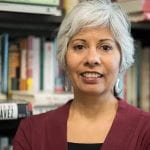 Laura Pulido, Ph.D. (she/her)
Laura Pulido, Ph.D. (she/her)
University of Oregon
Professor | Geography, IRES, Environmental Studies, Latinx Studies
Director | Critical Race Lab
Co-PI | PNW Just Futures Institute
 Alethea Steingisser (she/her)
Alethea Steingisser (she/her)
University of Oregon
Cartographic Project Manager | Infographics Lab
Senior Research Assistant | Geography
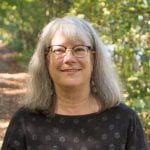 Marsha Weisiger, Ph.D. (she/her)
Marsha Weisiger, Ph.D. (she/her)
University of Oregon
Julie and Rocky Dixon Chair of U.S. Western History
Associate Professor | History & Environmental Studies
Co-Director | Center for Environmental Futures
Co-PI | PNW Just Futures Institute
Lauren Monkewicz | Summer 2021 | Built Partnership Pedagogy WordPress site
Ashia Ajani (they/she)
University of Oregon
Ph.D. Student | Environmental Studies & English
Digital Humanities Outreach GE | Center for Environmental Futures
Janice Chen (she/her)
University of Oregon
M.S. Student | Geography
Cartographic Research GE | Infographics Lab
 Nadya Barba-Ramirez (she/her)
Nadya Barba-Ramirez (she/her)
University of Oregon
JD and MPA Student
